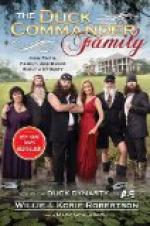He gazed at her with a glow of rapture in his eyes.
“The reward of thy love?” he whispered breathlessly.
“That may well be,” she answered; “but I was not thinking of that. Fix thine eyes rather on that crown of life which shall be given unto those who overcome.”
“I will think of both,” he answered, in an access of enthusiasm, “for God is our Father; He loves us. I fear not to take all good at His hand. Love to Him—love to thee—faithfulness to both. What more can heart of man desire than such an object to strive after?”
His earnestness could not be mistaken. She caught the reflex of his passionate devotion, and thrilled a little beneath his touch. He felt it in a moment, and caught her hands again.
“Give me a word of hope!” he cried. “Ah, my beloved, wilt thou not say that some day thou wilt love me?”
Freda was not one who would dally and trifle with her heart.
“In sooth, methinks I love thee now, Anthony. Nay, hear me a moment longer. I love thee with a strong and sisterly love; but I would know mine own heart better ere I promise more. We will be content with this knowledge for the nonce. I shall watch thee, Anthony; I shall hear of thee; I shall know what thou hast power to do and dare. But now let us say farewell, for I must carry my flowers within doors; and thou—it is time thou wert away. Thou hast a long journey to prepare for.”
And so, with one kiss, gravely given and taken, the lovers parted, and Anthony went on his way as one who treads on air.
Some three days later, with eager eyes and bated breath, Anthony Dalaber was following his friend John Clarke up the landing stairs of a certain wharf in the city of London, and gazing earnestly about him at the narrow, dark street in which he found himself, where the shades of night seemed already to have fallen.
He knew whither they were bound—to the house of a priest, Thomas Garret by name, well known to Clarke, and known by name to Dalaber, too. He was one of the most active of the little band now engaged in the perilous task of receiving and distributing the translated Scriptures and the pamphlets issued by Martin Luther and other reformers. He was an ex-fellow of Magdalen College, now a curate of Allhallows, near Cheapside. Dalaber had often had a wish to see this man, having heard of him in many quarters.
And now they stood knocking at the door of his house, which opened only a few hundred paces from the riverside.
They had to wait some little time; but Clarke was not impatient, though he gave a peculiar knock more than once upon the door. Presently it was opened a very little way, and a voice asked:
“Who are you, and what is your errand?”
“Crede et manducasti [i],” spoke Clarke, in a low voice; and at once the door was opened wider.
He stepped within, and Dalaber followed him. They found themselves in a very narrow entry hall, and could only see in the gloom that a serving man stood before them.




